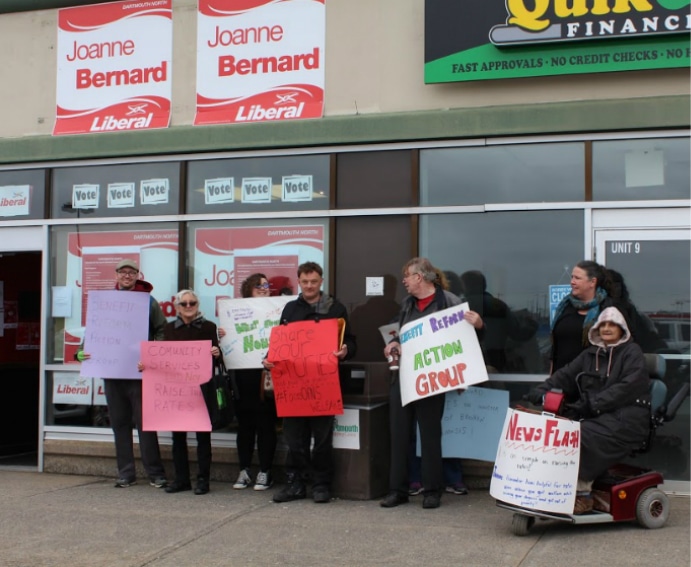KJIPUKTUK (Halifax) – Lately several people have told me that social assistance in Nova Scotia is beyond repair. I want to challenge that notion, because it is both nonsense and a bit dangerous.

There is nothing that is man-made that cannot be fixed when broken, and welfare is no exception.
It’s true that there is lots wrong with social assistance, and very little that is right. The system is punitive and patronizing, based on distrust, bureaucratic, and miserly.
Its caseworkers and other staff are stressed out and overworked, often lack empathy and are not focused on finding solutions for the individuals in their care.
Its management by and large has no idea what it is like to be poor, and have pursued their lengthy government careers in a climate of austerity and cut backs and nothing else. It’s all they know.
And its clients, finally, don’t get nearly enough money to eat, find a decent place to live, pay for transportation, and dare we even suggest it, have a bit of fun once in while or buy their kids a birthday present.
The root cause of the misery and stress experienced by people on social assistance is a lack of money. That’s where fixing the system starts.
The obvious solution is to raise the rates, and not by a random amount, not by a lousy couple of bucks, but raise it so that it reflects what things like shelter, clothes, shoes, transportation, and food actually cost today.
In Nova Scotia that translates into about $19,000 for a single person, and goes up to $44,000 for a family of five.
Maybe not all at once, but this needs to happen quickly, because I bet you tonight some people on welfare are going to bed hungry so their kids can eat, and that is a disgrace.
There’s more that needs to be done on the financial front, but this opinion piece is a broad brush kind of thing.
We’re on a roll. Now that people have money in their pockets, let’s fix the way they are being treated by the system.
To do so we must throw away the current policy manual and start from scratch. Policies should reflect a genuine wish to help rather than foster distrust. Really listening to people on social assistance would go a long way.
And caseworkers need to become true advocates for their clients. Some caseworkers swim against the stream, and always have their clients’ backs. We need to grow more of them.
Our new and improved policy manual will help there. As well, management should start listening to what its workers are telling them. Staff surveys suggest there is not a whole lot of listening going on at Community Services. Also, workloads are too high. Stress and burnout follow.
Caseworkers wield tremendous power in the lives of their vulnerable clients. Asking clients to evaluate their worker, much like university students formally evaluate their professors, is a way to identify workers that abuse those powers.
The idea that social assistance is beyond repair both nonsense and a little bit dangerous. The dangerous part is that when you call social assistance beyond repair you’ll stop fighting for a better version.
For instance, you may think that you better focus your energies on basic income. Basic income may well be a great idea. I am not so sure, but regardless, the fight for basic income is a fight for a long term goal. If you think fixing social assistance is hard, implementing a basic income system that is progressive will be harder yet.
Meanwhile people on social assistance are getting squeezed, and that will only stop when people on social assistance say enough is enough.
Social assistance can definitely be fixed. But it’s not going to fix itself.
If you can, please support the Nova Scotia Advocate so that it can continue to cover issues such as poverty, racism, exclusion, workers’ rights and the environment in Nova Scotia. A pay wall is not an option, since it would exclude many readers who don’t have any disposable income at all. We rely entirely on one-time donations and a tiny but mighty group of dedicated monthly sustainers.




great article Robert – this is an important reminder that poverty and inequality result from the decisions of the governments we elect – so yes we can change this
I think raising basic incomes is a great start! Perhaps that should be the concentration so clients can receive at the very least, some dignity. Great article!